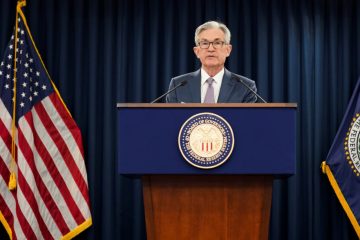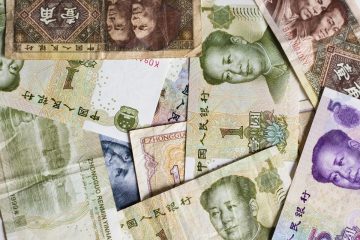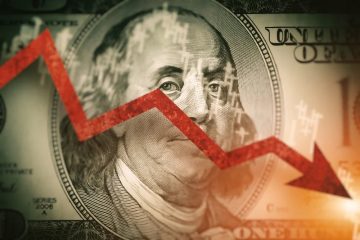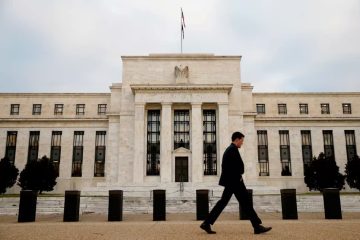Dollar bounces back, yuan slips after China appears to keep a tab on its currency

The dollar bounced back from a three-week low on Tuesday as market players bought it back, particularly against riskier peers, after Chinese authorities appeared to be trying to put a brake on recent rises in the yuan.
The Australian dollar lost about a half percent, taking an additional hit from media reports China has halted coal imports from the country as their relations deteriorate.
But overall risk sentiment was propped up by hope that former U.S. Vice President Joe Biden will beat President Donald Trump in the Nov. 3 U.S. election and push forward with a large stimulus to shore up a pandemic-hit economy.
The dollar index rose 0.1% to 93.190, trying to extend its rebound from Friday’s near-three-week low of 92.997, with the euro falling 0.17% to $1.1794.
The Chinese yuan fell 0.1% to 6.7500 per dollar, after the central bank set a weaker than forecast midpoint, offsetting any boost from strong Chinese trade data.
China’s central bank announced on the weekend the removal of reserve requirements for some foreign exchange forwards, cementing speculation Beijing wants to curb the yuan’s strength.
“Biden trades have been hot in the last several days, in which people sell the dollar, particularly against currencies that have suffered under Trump, like the yuan, the Mexican peso or the Canadian dollar,” said Masaru Ishibashi, joint general manager of Sumitomo Mitsui Bank.
“But if you think that Beijing is sending a message to rein in the yuan’s strength, then it might make sense to unwind that trade for now.”
The Mexican peso also fell 0.4% to 21.270 to the dollar while the Canadian dollar dipped 0.1% to C$1.3124 per dollar.
A Biden victory is seen as negative for the dollar also partly because his pledge to increase corporate tax would reduce returns from investments in the United States, putting pressure on the dollar even against safe-have currencies such as the yen and the Swiss franc.
The yen moved little at 105.43 per dollar while the Swiss franc traded at 0.9102 to the dollar, near its highest in three weeks.
Sterling traded above the key $1.30 level as hopes for a Brexit deal offset concern about pressure on the economy from new coronavirus restrictions British Prime Minister Boris Johnson has announced.
The pound stood near its strongest levels in two weeks against the euro, which changed hands at 0.9043 pound.
On the other hand, the Australian dollar dropped as much as 0.6% to $0.7165, not helped by media reports China has stopped taking shipments of Australian coal.
“Despite the positive risk sentiment, the Aussie appears to have been well contained by further indications that Chinese imports of met and thermal coal have been banned. This is important given that 22% of Australian thermal coal exports went to China in the last year and 28% of met coal,” said Rob Rennie, head of financial market strategy at Westpac.
“We stick to the view that the near-term risks for the A$ are lower and a dip below 0.70 through end October/ early November is still possible.”









